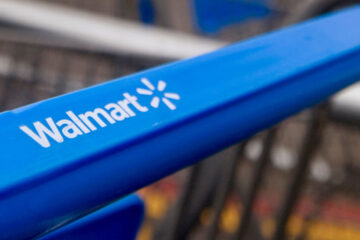Over the last few years, the demand for non-alcoholic beverages has increased more than ever and turned into a profitable new business. This has led multiple alcohol manufacturing companies to create innovative products to enter the zero-proof beverage market.
According to a collection of studies by BCG, global sales of non-alcoholic drinks make up nearly 4% of the overall alcohol market and are expected to grow by over 7% annually between 2023 and 2027.
💰💸 Don’t miss the move: SIGN UP for TheStreet’s FREE Daily newsletter 💰💸
However, this is not due to most people’s willingness to live a completely sober life but rather to reduce or limit their alcohol consumption by alternating between alcoholic and non-alcoholic beverages.
The U.S. is a lucrative ‘sober curious’ market for these zero-proof beverages and is only expected to grow even more as 82% of alcohol consumers also buy non-alcoholic drinks.
As of 2023, the non-alcoholic beverage market in the U.S. is worth over $1.8 billion, with an average 25% yearly growth from 2019 to 2023 for the low/non-alcohol sector.
Guinness 0.0 advertising at Cheltenham Racecourse, on day one of the 2023 Festival.
Mike Egerton – PA Images/Getty Images
Diageo adds a sober spin to its alcoholic beverage market
Diageo is a British company that manufactures over 200 brands of premium alcoholic and non-alcoholic beverages sold in nearly 180 countries worldwide.
Some of Diageo’s brands include renowned names such as Don Julio, Crown Royal, Johnnie Walker, Baileys, and Guinness, to name a few.
Although the company is known for its alcoholic beverage production, it has made multiple efforts to promote alcohol moderation by increasing awareness of the effects of alcohol and supporting responsible drinking through its Drinkiq program.
As part of its alcohol moderation initiatives, Diageo has invested in the non-alcoholic beverage market for the last few years by producing its Guinness 0.0 beverage in 2020. This beverage aims to taste like a regular Guinness beer but contains no alcohol.
Guinness 0.0 has proven immensely popular among the sober and sober-curious community, as sales increased by nearly 50% from February 2023 to February 2024.
This non-alcoholic beer has become so successful that it has even taken over Heineken 0.0’s title as the top-selling non-alcoholic beer in the UK.
However, the production of Guinness 0.0 is far more lengthy and costly than that of its regular alcoholic version. The process is the same as that used on the original Guinness, but it takes two days longer due to the cold filtration process used to revoke all the alcohol content.
In July of last year, the company invested €25 million to construct an entirely new facility for its non-alcoholic alternative at St. James’s Gate in Dublin, Ireland, to help meet domestic and global demand for the beverage.
Additionally, with the construction of this new facility, the company forecasted that Guinness 0.0 would account for 10% of all its Guinness sales in the Irish market and that its production would increase by nearly 300% globally in the upcoming years.
Brian O’Driscoll launches the Guinness 0.0 responsible drinking campaign on March 14, 2023, in Dublin, Ireland.
Charles McQuillan/Getty Images
Diageo makes a huge announcement to grow its non-alcoholic business
This month, Diageo (DEO) announced it would nearly double its Guinness 0.0 production to 176 million pints yearly by investing a further €30 million, for a total investment of €60 million in the zero-proof drink since its launch in 2020.
More Retail:
Keeping Up With Fashion: Abercrombie, Zara, H&M controversies come back to haunt themAdidas makes major announcement in Yeezy controversyTwo major fashion handbag brands were just dealt a big blow by the U.S. government
Diageo knows how profitable North America’s ‘sober curious’ market is, as it accounts for 39% of its business.
Last month, the company also acquired Ritual Zero-Proof Non-Alcoholic Spirits in an effort to further expand its presence in the U.S. non-alcoholic liquor market and achieve sustainable growth.
Related: Veteran fund manager sees world of pain coming for stocks


